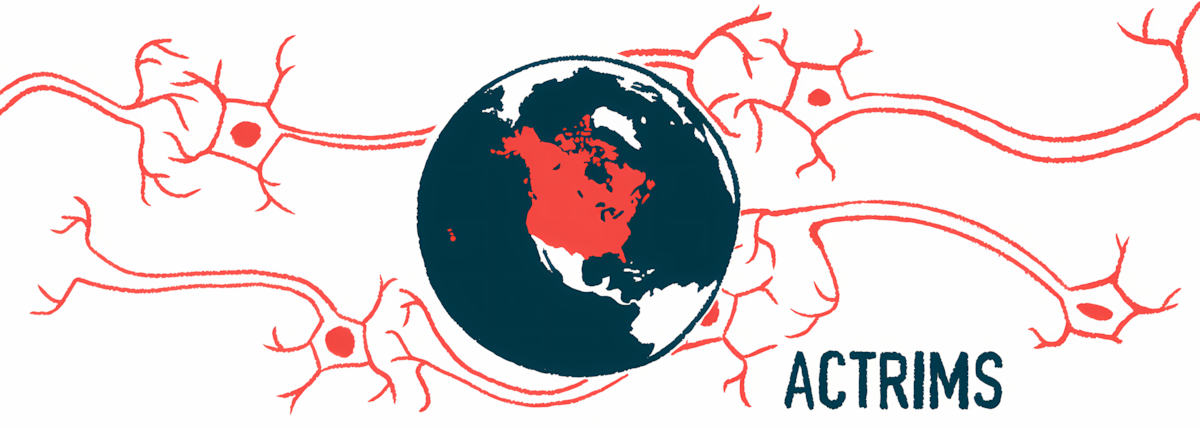ACTRIMS 2025: Ketogenic diet alters immune cell function
Samples from patients in 6-month trial of modified Atkins diet show changes

Note: This study was updated March 3, 2025, to correct that a ketogenic diet is a low-carbohydrate, high-fat diet.
Eating a version of the low-carbohydrate, high-fat ketogenic diet for six months led to an anti-inflammatory shift in immune cell populations among people with stable, relapsing-remitting multiple sclerosis (RRMS) in a Phase 2 trial.
These changes were accompanied by metabolic alterations in the immune cells that researchers believe could influence their activation state.
The findings were detailed by Michael Kornberg, MD, PhD, assistant professor of neurology at Johns Hopkins University School of Medicine in Baltimore, at the Americas Committee for Treatment and Research in Multiple Sclerosis (ACTRIMS) Forum 2025, held Feb. 27-March 1 in West Palm Beach, Florida, and online.
“The bottom line to me is that it is just further evidence that you really can modify immune phenotypes [characteristics] with dietary interventions,” Kornberg said in a talk titled, “A Six-Month Ketogenic Diet Alters The Immune And Metabolic Landscape In Multiple Sclerosis.”
Immune cell activity and MS
Pro-inflammatory immune cell activity plays a key role in driving autoimmune diseases including multiple sclerosis (MS), in which the immune system mistakenly attacks healthy parts of the brain and spinal cord.
Metabolic processes, including the chemical reactions through which energy is produced, influence immune cells’ activation state. Researchers believe therapeutics that modify immune cell metabolism could benefit people with MS or other autoimmune conditions.
“If you can modify metabolism with drugs, then theoretically you can also do it with dietary interventions,” Kornberg said. But while animal studies have indeed indicated that diet can influence immune responses, “rigorous evidence in humans has been quite sparse,” he noted.
Among the diets proposed to be of possible benefit in MS is the ketogenic diet, a type of low-carbohydrate, high-fat diet that leads to ketosis, a state in which the body burns fat instead of sugar to produce energy.
The modified Atkins diet, or MAD, is a less restrictive version of the ketogenic diet that doesn’t require the same degree of carbohydrate limitation, and may therefore be “more palatable for long-term adherence,” Kornberg said.
A now-completed Phase 2 study (NCT03718247) evaluated the potential benefits of a six-month MAD diet in 65 relapsing MS patients with stable disease, ages 12-55.
Results showed that it led to significant improvements in physical function, life quality, and body composition, as well as reductions in fatigue and depression. Patients also reported an easing of a number of other MS-related symptoms.
Researchers examined blood and immune cells collected from 39 trial participants at the start of the study and after six months on the MAD diet, aiming to characterize the diet’s effects on immune cell function and metabolism.
The composition and gene activity profiles of immune cell subsets were substantially altered after six months on the MAD diet and generally showed a shift toward an anti-inflammatory profile.
Myeloid cells, including dendritic cells and monocytes, exhibited reduced activity of genes associated with pro-inflammatory pathways. They also produced fewer pro-inflammatory molecules after the six-month diet, and levels of such molecules circulating in the blood were reduced.
The diet was also associated with alterations in the abundance of various types of T-cells, favoring less inflammatory populations. In particular, regulatory T-cells, which have anti-inflammatory effects by suppressing the activation of other immune cell types, exhibited an increased abundance with the diet and showed signs of being more active.
Levels of B-cells, a class of antibody-producing immune cells believed to drive inflammation in MS, were not altered with the diet, but these cells showed gene activity changes consistent with decreased activation.
Additional analyses of blood metabolites showed that the six-month MAD diet altered a variety of metabolites, including ones related to cellular energy production.
The data suggested that the metabolic pathways immune cells used for energy generation were altered with the diet. Before the diet, the cells seemed to favor breaking down sugar for energy (glycolysis), whereas after it, they favored using fat molecules (fatty acid oxidation).
That was evidenced by reduced levels of GLUT1, a molecule involved in transporting sugar into cells, after the six-month diet, along with increases in CPT1a, an enzyme involved in fatty acid oxidation.
Kornberg said these altered pathways are “ones that you would expect to be particularly relevant for immune cell activation.”
Whether these immune cell alterations are enough to influence clinical outcomes for MS patients is not yet known, nor is it clear exactly through which mechanisms MAD might influence immune function, he said.
The long-term safety of ketogenic diets in patients also remains to be established, “which is a critical point if a patient is thinking about embarking on this,” Kornberg said.
The study was funded by the Doris Duke Foundation and the Mayer Foundation.







